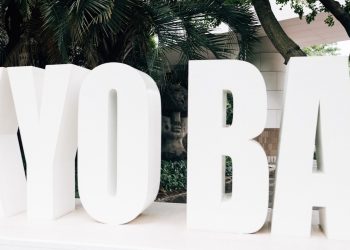No products in the cart.
Serving Beyond the Border: Lessons from a Life of Duty and Discipline
Through the personal lens of Col. Vinod Kumar Sharma, this article explores the enduring values and legacy of a BSF officer whose life blended service, strategy, and deep community connection at India’s borders.
What does it mean to live a life of service, duty, and unshakable commitment to the nation? Through the eyes of Col. Vinod Kumar Sharma, we revisit the extraordinary life of his father, Late DIG R.P. Sharma, a distinguished officer in the Border Security Force (BSF). More than just a uniformed man at the border, he was a leader, a community builder, and a legal mind who carried the spirit of national service beyond retirement. This personal narrative highlights the experiences, values, and lessons from a Borderman’s life—relevant even today for young Indians considering careers in public service or simply looking for inspiration in a time of constant change.
The Role of the Borderman
The Indian Border Security Force is a key paramilitary force entrusted with safeguarding the Indian boundary line. Its role is vital as one of the first lines of defence protecting the civilians residing in border towns and villages. Its motto “Duty unto Death” is engraved in the soul of each and every ‘Borderman’.
Late R.P. Sharma, DIG was one such borderman. Born to a humble family in a village near Taqthgarh, he became one of the only BSF officers holding a Dual Charge as Chief Law officer & JAG NSG. He authored the book “Manual of BSF Law”—a leading authority in service matters, while practicing at the Supreme Court after retirement from the forces. He was a borderman with an in-depth knowledge of law and procedure, a rare find.
Community and Country
His eldest son, Vinod, grew up to be a colonel with the Indian Army. This article features his writings and recollections of his father’s role as a borderman.
The BSF task of protecting the borders stretched to protection of villages in and around the border, including protection of civilians from the nefarious designs and activities of the enemy. In the sixties, cross-border firing and infiltration were often seen as a daily routine and seldom shocked or demoralized a borderman’s family. Having to research every nook and corner, every ditch, tunnel and ridge, and topographical feature was regular exercise.
He worked closely with SDMs and Tehsildars to provide to the border villages basic facilities such as schools, dispensaries, etc.
Building Bonds with Villages
Papa used to tell us, “bordermen had protocols to deal with residents of border villages…. A key part of their duty was to maintain an excellent rapport with villagers and build their faith and trust. In certain areas the task also included making sincere efforts to integrate them with the rest of the nation.”
As a young CO (commanding officer) posted at Dera Baba Nanak, R.P. Sharma was instrumental in organizing several sports and cultural programs for the local villagers. He encouraged them to participate in events organized by BSF and make an endeavour to serve the nation as exemplary citizens. Certificates of merit, participation, and prizes were given and efforts were made to build a good relationship with the village communities, especially the youth. He worked closely with SDMs and Tehsildars to provide to the border villages basic facilities such as schools, dispensaries, etc. and to resolve any problems that they faced.
Undeniably, the rapport that the Borderman shared with the local population made the villagers more inclined to provide security-related information, updates on border activity, and other intelligence inputs.
Ground Intelligence and Cultural Wisdom
I chanced to accompany my father for a border inspection tour in a remote corner of Jammu and Kashmir. At that time, certain pockets in the mountainous regions were becoming host to terrorist camps. Our convoy comprising four to five vehicles swerved through the ravines of the majestic mountains. On a lonely spot, just by the waterfall, an old lady was walking by. Dad rolled down his window and asked in his typical Punjabi accent, “Amma sab theek hai?” (All is well?) And she replied, “Ethe bus butte he butte ne!”
Once the convoy started moving again, I asked my father what she meant and he laughingly told me her evasive answer: “There is nothing to tell here… (no pivotal information)… only pebbles and pebbles in this area!”
When we halted for the night at BSF base camp, our men on the wireless informed of interceptions of our wireless network by the miscreants who even challenged the inspecting officer that they would locate their camp and visit them for a cup of tea.
When we halted for the night at BSF base camp, our men on the wireless informed of interceptions of our wireless network by the miscreants who even challenged the inspecting officer that they would locate their camp and visit them for a cup of tea.
Understanding the Terrain and Its People
In that instance, it was R.P. Sharma’s knowledge of the culture and traditions of the area, and other information related to the region, which made it possible to deduce that it was the local herdsmen, with their routine cross-border travels and nomadic way of life, who had formed an alliance with the enemy and as a result, had been providing strategic support to the miscreants from across the border.
Having understood the root of the problem, it was possible for the border force to carry out combing operations in the said mountains, freeing them of the anti-national forces and ultimately cleansing the place of the terrorist camps in those areas.
Training for a Lifetime
The rigorous mental and physical training of the Borderman, his vast experience at the border in different terrains, and familiarity with the people living in border villages made him fit to partake the job of securing areas along the border in depth.
This is the training that carried the borderman forward in life… well after retirement from active duty. The knowledge and experience of the officer and his families provided the inspiration for future generations to stand up and enrol in the process.
The knowledge and experience of the officer and his families provided the inspiration for future generations to stand up and enrol in the process.
Evolving Role of the BSF
In today’s world, the government’s decision to extend the area of jurisdiction of the BSF up to 50 kilometers from the border enables Bordermen to carry out combing and search operations in more areas and aid the state governments in weeding out anti-national elements and greatly reduce threats to national security emanating from these areas. In addition, having a centralized chain of command makes the BSF fully equipped and competent to handle issues relating to secure the areas adjoining and adjacent to the borders and extending up to 50 kilometers.
Authored by Late Col. Vinod Kumar Sharma
Edited by Jahnvi Sharma, Advocate












These are the traits of our fauji kids, (BRAT) in army lingo.
They don’t fib about their actual Status, nor misuse their professional acumen to threaten locals.
On the contrary they carry their olive father’s legacy to a new level.
Proud of you Jahnvi
Jai Hind
B.R.A.T: Born Raised and Transferred